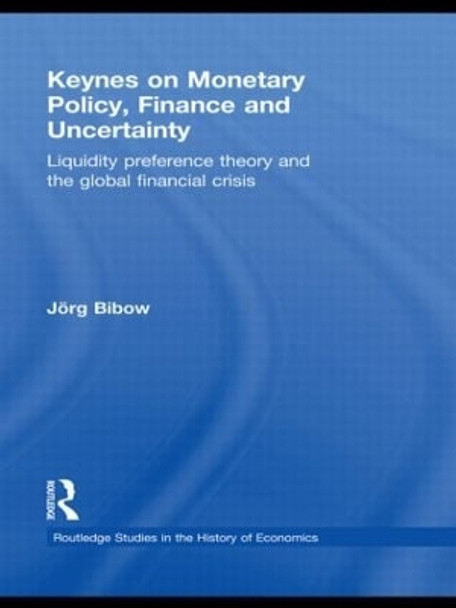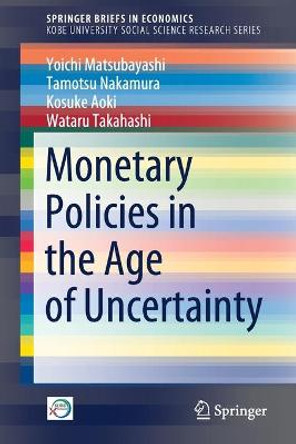Description
This book provides a reassessment of Keynes' theory of liquidity preference. It argues that the failure of the Keynesian revolution to be made in either theory or practice owes importantly to the fact that the role of liquidity preference theory as a pivotal element in Keynes' General Theory has remained underexplored and indeed widely misunderstood even among Keynes' followers and until today. The book elaborates on and extends Keynes' conceptual framework, moving it from the closed economy to the global economy context, and applies liquidity preference theory to current events and prominent hypotheses in global finance.
Joerg Bibow presents Keynes' liquidity preference theory as a distinctive and highly relevant approach to monetary theory offering a conceptual framework of general applicability for explaining the role and functioning of the financial system. He argues that, in a dynamic context, liquidity preference theory may best be understood as a theory of financial intermediation. Through applications to current events and prominent hypotheses in global finance, this book underlines the richness, continued relevance, and superiority of Keynes' theory of liquidity preference; with Hyman Minsky standing out for developing Keynes' vision of financial capitalism.
About the Author
Jorg Bibow is Associate Professor of Economics at Skidmore College, New York, USA and Research Associate at the Levy Economics Institute of Bard College, Annandale-on-Hudson, New York, USA
Reviews
"I do not think anyone has exceeded, let alone matched, Bibow's ability to think within Keynes's own multi-dimensional, rich approach to economic theory and the provision of policies based upon it. ...
The end result is a volume of profound scholarship and fundamental analysis of the workings of the modern interrelated capitalist world, emphasising especially the central role of Keynes's liquidity preference theory of the rate of interest in theory and in the design of appropriate policies with which to tackle the fall out from the present crisis and its long-term aftermath."
Geoff Harcourt, University of Cambridge
Over the years, Joerg Bibow has built a substantial reputation as a champion of Keynesian liquidity preference theory. This book brings together many of the papers on which this reputation is founded, together with applications to recent and ongoing events in global finance. The papers range from contributions on the history of economic ideas, through to economic history, contemporary monetary policy and recent travails in the banking sector. Lord Skidelsky, perhaps the most famous of Keynes's biographers, has recently written that 'We do not need a new Keynes; we do need the old Keynes, suitably updated'. This collection provides one of the best examples of what Skidelsky has in mind, an up-to-date body of analysis directed at contemporary issues that is not only Keynesian in name, but also reflects the spirit, analytical sophistication and appreciation of empirical data that can only come from a deep and intimate engagement with Keynes's work in economic theory, economic policy and as an investor.
Jochen Runde, Judge Business School, Cambridge University
This is a book for the times. It revisits Keynes's ideas on money, banking and monetary policy in a way which illuminates our understanding of the current crisis and how policy should address it. In particular, Bibow demonstrates the central role of liquidity preference, a cornerstone of Keynes's theory which has been paid inadequate attention in the renewed focus on Keynesian fiscal policy. This is a scholarly contribution which directly addresses important policy issues in a compelling manner.
Sheila Dow, Emeritus Professor of Economics, University of Stirling, August 2010
"This book on the relevance of Keynes's insights into the complex workings of finance and monetary policy, when uncertainty is taken seriously, is timely and very well done. The global financial crisis revealed the inadequacy of the mainstream 'New Consensus Macroeconomic' theoretical framework. In this very well written book, Joerg Bibow offers a clear exposition of a much richer Post-Keynesian alternative that applies liquidity preference theory to current events and prominent themes in global finance. The New Consensus Macroeconomics does not even address liquidity preference or money."
Philip Arestis, Cambridge University, August 2010
This is a book for the times. It revisits Keynes's ideas on money, banking and monetary policy in a way which illuminates our understanding of the current crisis and how policy should address it. In particular, Bibow demonstrates the central role of liquidity preference, a cornerstone of Keynes's theory which has been paid inadequate attention in the renewed focus on Keynesian fiscal policy. This is a scholarly contribution which directly addresses important policy issues in a compelling manner.
Sheila Dow, Emeritus Professor of Economics, University of Stirling, August 2010
"This book on the relevance of Keynes's insights into the complex workings of finance and monetary policy, when uncertainty is taken seriously, is timely and very well done. The global financial crisis revealed the inadequacy of the mainstream 'New Consensus Macroeconomic' theoretical framework. In this very well written book, Joerg Bibow offers a clear exposition of a much richer Post-Keynesian alternative that applies liquidity preference theory to current events and prominent themes in global finance. The New Consensus Macroeconomics does not even address liquidity preference or money."
Philip Arestis, Cambridge University, August 2010
Book Information
ISBN 9780415616478
Author Jorg Bibow
Format Paperback
Page Count 272
Imprint Routledge
Publisher Taylor & Francis Ltd
Weight(grams) 500g








